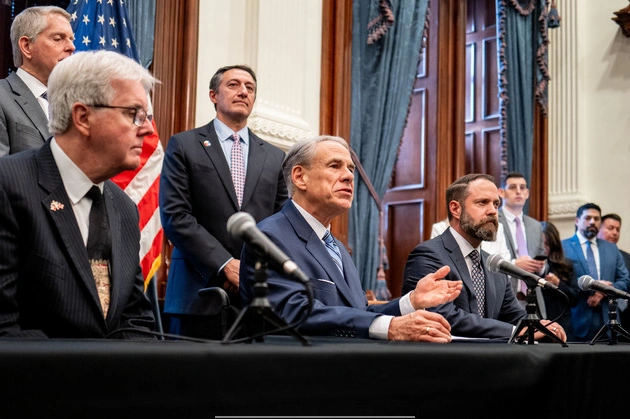
Texas Governor Greg Abbott’s recent veto of a bill that aimed to ban intoxicating hemp products has sparked significant discussions within the state’s burgeoning hemp industry. The proposed ban, which would have had far-reaching effects on the market, with over $4 billion in annual sales and thousands of licensed retailers, was met with strong opposition from industry stakeholders.
Industry Advocacy and Legislative Response
The Texas Hemp Business Council, backed by a petition with over 150,000 signatures, actively lobbied for the veto, emphasizing the potential economic repercussions of the ban. Their efforts, along with the support of other key players in the industry, ultimately influenced Governor Abbott’s decision to reject the bill.
Republican Lt. Gov. Dan Patrick, a proponent of the ban citing public health concerns, faced pushback from advocates who argued for a regulatory framework instead of a blanket prohibition. The bill’s journey through the legislative process highlighted the divergent views on how best to address the challenges posed by hemp products.
Implications and Future Direction
Abbott’s call for a comprehensive regulatory bill signals a shift towards a more nuanced approach to hemp regulation, drawing parallels with alcohol regulation. The emphasis on public safety, federal compliance, and enforcement mechanisms underscores the complexity of the issue and the need for balanced solutions.
As other states grapple with similar regulatory dilemmas, Texas stands out for its decision to prioritize industry feedback and consider alternative measures that align with evolving market trends. The vetoed bill’s legal shortcomings and potential for prolonged litigation further underscore the importance of crafting well-informed and enforceable legislation.
Industry Responses and Ongoing Debates
The hemp industry’s positive reception of the veto reflects a collective sense of relief and validation for their advocacy efforts. Legal experts and industry insiders commend Abbott’s decision as a step in the right direction, emphasizing the need for nuanced approaches to cannabis regulation.
Conversely, anti-legalization groups and critics of the veto express disappointment and concern over perceived industry influence on policy decisions. The debate surrounding hemp regulation continues to evolve, with stakeholders on all sides advocating for measures that prioritize public health, industry viability, and legal clarity.
Conclusion
Texas’ recent legislative developments regarding hemp regulation serve as a microcosm of broader debates surrounding cannabis policy in the United States. Governor Abbott’s veto represents a pivotal moment for the state’s hemp industry, setting the stage for future discussions on how best to balance regulatory requirements with industry growth and consumer safety.











